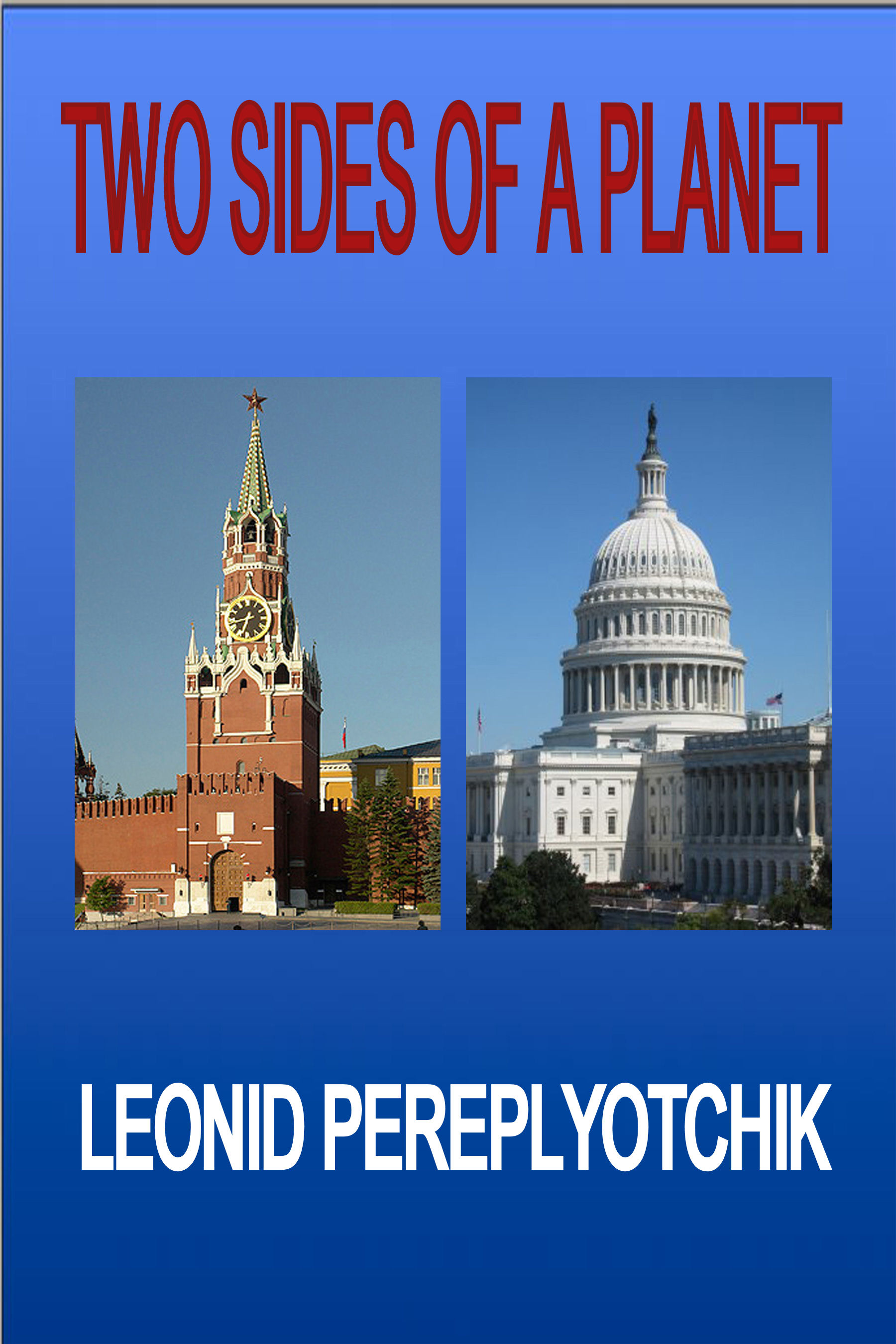|
FOR IMMEDIATE RELEASE
CONTACT: Leonid Pereplyotchik
dvtest2003@yahoo.com
Leonid Pereplyotchik
Two Sides of a Planet
Short Stories
Book Description:
This book is a result of an author's experience. Leonid Pereplyotchik was born in the USSR.
He worked in Siberia as a Computer Science professor at Siberia University. In the USSR, Leonid
wrote science articles, novels, and philosophical essays. After leaving the USSR, he worked in
the USA and used his American experience to write more novels and essays.
Russia is the other side of the planet. It is not very understandable, sometimes mysterious, sometimes threatening... How did people live under a totalitarian regime? How did they manage to survive under the tough pressure of the authority that controlled all sides of private life? What did the ideological socialism look like - not according to propaganda, but in reality? It is not easy to answer these questions.
There are big gaps: social, psychological, and political between the two sides of the planet - USA and Russia. Those who left Russia and entered to the Western World serve as a bridge from totalitarian to capitalist society. In other words, two contradicting worlds are combined in one mind of émigré from USSR/Russia. This book is focused on this social phenomenon.
The story Churchill Club is the sad love story about an American sailor (John) and a Russian prostitute (Kate). They meet in the port of Archangelsk, where Soviet authorities have organized the brothel for the sailors from an alien convoy during World War II.
Another love story has a title Black Square. The painting "Black Square" by famous painter Kazimir Malevich is well known. There are many interpretations of this painting. The most intriguing interpretation is the mystical one.
Yefim and Pablo Picasso's niece, Claude, meet each other in Seattle. Two solitudes can understand each other, but cannot live together. They are doomed to strolling through Space like the Flying Dutchmen. The tragic development of the relationship between those two lonely people undergoes, under the heavy look of the Black Square.
Russian reality is a special sort of reality. Hidden behind of the beautiful words about liberty, equality, and fraternity, the Soviet world looks attractive for many Western intellectuals. Bolsheviks created the special sort of Wonderland, in which myths were reality, misery of ordinary people is selling to the Westerners as happiness; absence of freedom, and killings of millions of innocent people in GULAG system is shown as a bright future for all mankind.
Some sides of Russian life look completely illogical. Many everyday life facts are not very understandable for American readers, especially when they read the story Farewell Slav. When you read this story, you can see the typical Russian intellectuals and their problems with the totalitarian regime.
The bright picture of a provincial Ukrainian town is shown in the story La Traviata. A little boy, David, meets various people: former soldiers, Holocaust victims, and people who suffered severely from the Nazis. This sad destiny a former opera singer, a young woman who got mad after Nazis killed her daughter, deeply impressed little David.
The short story Vera Lotar is devoted to the sad destiny of the French pianist Vera Lotar. She get married Ivan, the Soviet trade representative in Paris, goes with him to Moscow. The secret police arrest Vera and Ivan. Vera Lotar goes through all of the ordeals of Soviet "Communist paradise": jails, concentration camps, humiliations, and tortures. After Stalin's death, she moves from exile to Novosibirsk and occasionally performs at piano concerts. Her former torturer, a retired KGB officer, lives in the same town.
More characteristics of Soviet society are cruelty and inhumanity. Chechen Transit is the story about a Soviet soldier and his hard life in the military service. He is a witness to the bloody crushing of a Chechen uprising.
A typical village boy, Alex (The short story Shoorka), becomes a soldier and goes to the Afghanistan war. He sees heroism and cowardice in the Soviet officers and soldiers. He participates in annihilating Afghan settlements and villages and mass killings of the Afghan people. He is wounded in the battle and returns home. After the collapse of the Communist regime and development of "wild capitalism" in Russia, Alex tries to run a private business, but gets into a conflict with a local criminal authority. He frustrates the overall corruption and criminalization of the Russian society. He tries to escape to the USA, but the bandits from Russia reach him there.
The short story River of Oblivion describes a destiny of the family from France, who came to the USSR, being fooled by the Soviet propaganda. The harsh reality of the neglected village brings many hardships to this family. All members of this family are arrested and sent to a concentration camp as French spies. They, like thousands of Soviet people, share the tragic fate of Soviet slaves. Finally, they are taken to Nowhere by the River of Oblivion.
About the Author:
Leonid Pereplyotchik was born in the USSR.
He worked as the Siberia University professor. In the USSR he had published some science articles, essays, novels.
After leaving the USSR, Leonid worked in the USA and used his American experience to write more novels and essays. He published his books "On both sides of the Bering Strait" and "River of Oblivion". The book "Two Sides of a Planet" is the third one published in the USA.
TWO SIDES OF A PLANET
by Leonid Pereplyotchik
Publication Date: December 2006
Library of Congress Control Number: 2006908487
$19.99; Paperback; 290 pages;
ISBN: 1-4196-4885-3
Language: English
|
